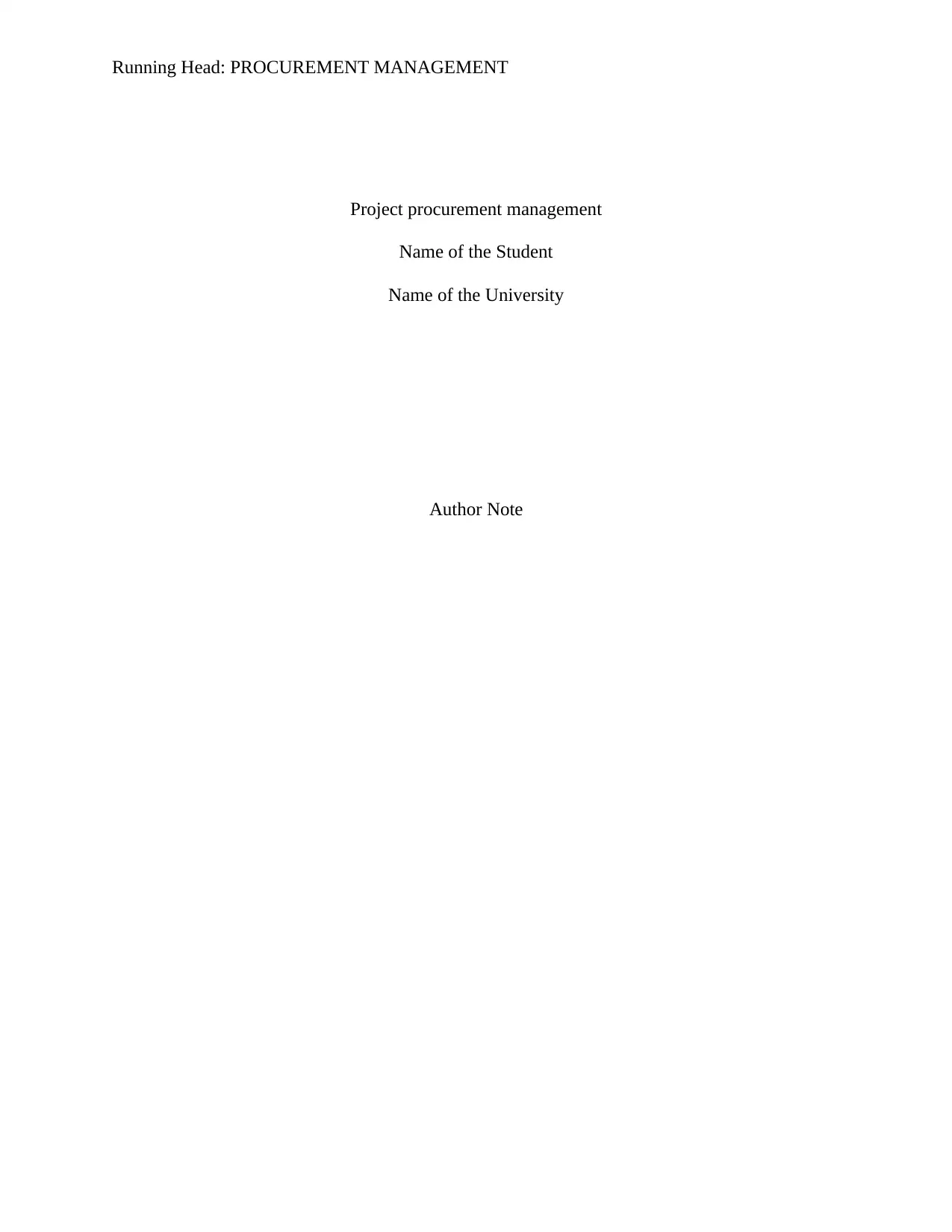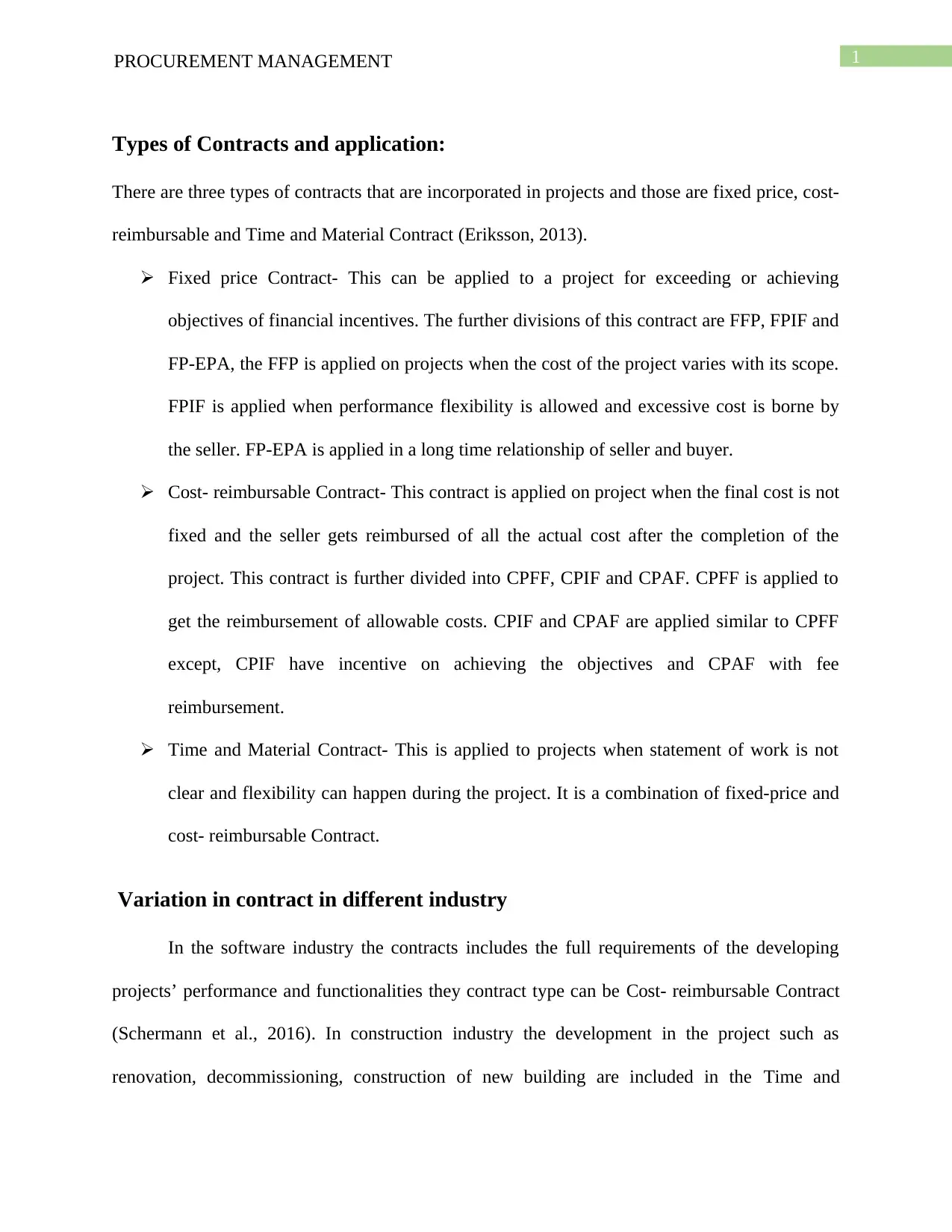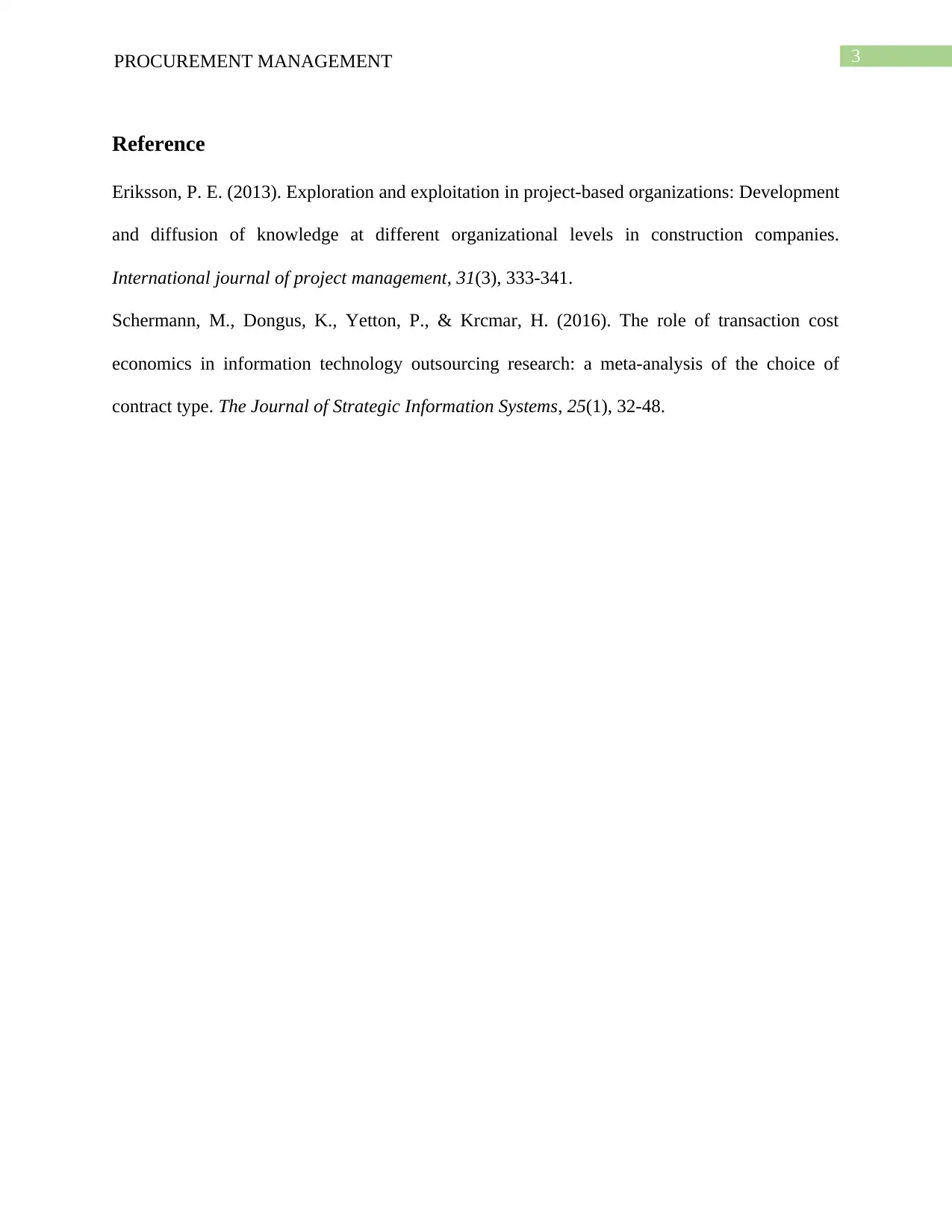Procurement Management Report: Contract Types and Applications
VerifiedAdded on 2022/10/19
|4
|431
|28
Report
AI Summary
This report delves into the intricacies of project procurement management, focusing on the different types of contracts used within projects, including fixed-price, cost-reimbursable, and time and material contracts. The report explores the application of these contracts across various industries such as software, construction, and government sectors, highlighting the specific requirements and considerations for each. It also touches upon the process of developing a Request for Proposal (RFP), evaluating proposals, and monitoring and controlling procurement contracts. The analysis includes detailed explanations of contract variations, emphasizing how each type aligns with project objectives and financial incentives. The report provides insights into how contract types are tailored to industry-specific needs, offering a comprehensive overview of procurement practices.
1 out of 4











![[object Object]](/_next/static/media/star-bottom.7253800d.svg)